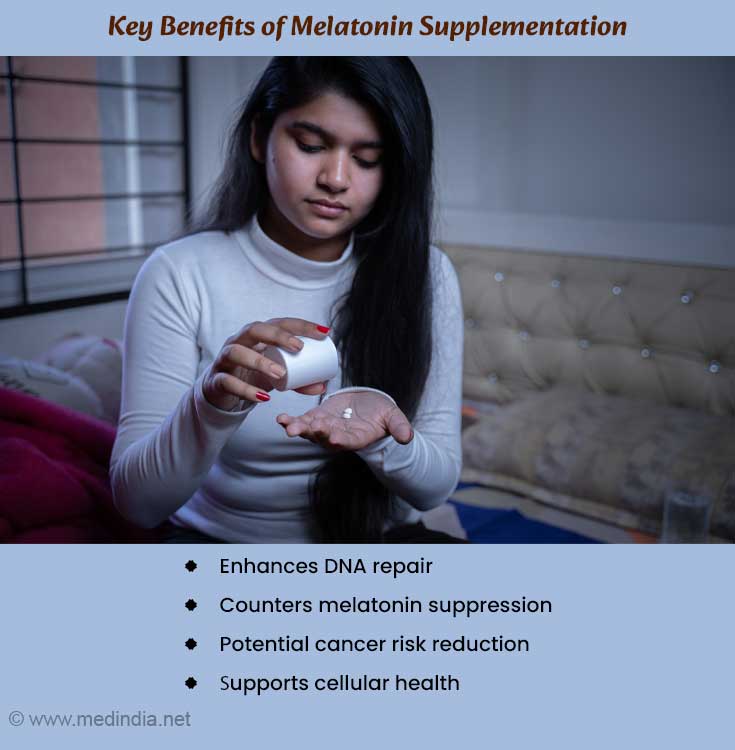Melatonin may improve DNA repair in night shift workers, helping counteract oxidative damage and reduce cancer risks.
- Melatonin supplements boosted DNA repair by 80% in night shift workers
- Oxidative DNA damage is linked to cancer risk in night shift workers
- Larger studies are needed to confirm long-term benefits of supplementation
Melatonin supplementation and oxidative DNA damage repair capacity among night shift workers: a randomised placebo-controlled trial
Go to source).
Understanding the Impact of Night Shift Work
The human body follows a natural sleep-wake cycle regulated by the hormone melatonin, which is typically produced at night. However, night shift workers often experience reduced melatonin production due to exposure to artificial light. This suppression may weaken the body’s ability to repair oxidative DNA damage, increasing the risk of certain cancers.Night shift work reduces melatonin, weakening DNA repair and increasing cancer risk. Melatonin supplements may help! #nightshift #medindia’
Melatonin Supplementation and Its Impact on DNA Repair
Participants in the study were randomly assigned to take either a 3 mg melatonin supplement or a placebo pill daily for four weeks. The melatonin was taken with food, an hour before daytime sleep, to mimic natural nighttime melatonin production.Throughout the study, researchers collected urine samples to measure 8-OHdG levels, a biological marker that indicates DNA damage repair capacity. The results revealed that participants who took melatonin had 80% higher levels of 8-OHdG during daytime sleep than those in the placebo group, suggesting improved DNA repair. However, there was no significant difference in repair capacity during the night shifts.

Significance of the Findings
These findings suggest that melatonin supplementation could help night shift workers repair DNA damage caused by their altered sleep patterns. Given the well-documented link between oxidative DNA damage and cancer, this intervention may serve as a protective strategy against the long-term health risks associated with night shift work.
However, the study had limitations. Most participants worked in healthcare, meaning the results may not apply to all types of night shift workers. Additionally, factors such as natural light exposure, which influences melatonin production, were not accounted for in the study.
Night shift work poses serious health risks due to reduced melatonin production and impaired DNA repair. This study suggests that melatonin supplementation may enhance the body’s ability to repair DNA damage, potentially lowering the risk of cancer in these workers.
- Melatonin supplementation and oxidative DNA damage repair capacity among night shift workers: a randomised placebo-controlled trial - (https://oem.bmj.com/content/early/2025/01/21/oemed-2024-109824)
Source-Medindia
















